Department and Faculty
/prod01/channel_2/media/mccms/content-assets/academics/residencies-and-fellowships/pediatric-infectious-diseases-minnesota/department-and-faculty/ped-infect-dis-mn-faculty2-1024X512-WF4380658_0008.jpg)
Mayo Clinic Children's Center includes more than 200 pediatric and adolescent medical providers specializing in more than 40 areas that provide care ranging from routine checkups to complex surgical procedures. Mayo Clinic treats more than 50,000 children and adolescents, including some 5,000 hospital patients, every year. Mayo Clinic pediatric and adolescent surgeons perform more than 8,000 procedures annually.
Mayo Clinic's campus in Rochester, Minnesota, has two areas that treat infectious diseases. The Division of Pediatric Infectious Diseases has five pediatric infectious diseases board-certified consultants who work closely with other division colleagues to treat infectious diseases in children and adolescents. The Division of Infectious Diseases was established in the 1950s and consists of more than 30 consultants and 15 fellows.
Both divisions are consultative practices for patients in the hospital and the outpatient setting. Physicians identify and treat infections that arise from exposure to infectious diseases, or that follow organ transplantation and other surgical procedures.
These specialized services are offered:
- Hospital-based consultation. Specialized treatment for patients who are hospitalized with infections or who develop infections while hospitalized for other reasons.
- Outpatient infectious diseases consultation. Specialized evaluations for patients referred by their physicians for the evaluation and management of suspected or proven infections.
- HIV Clinic. Specialized treatment for patients who have been exposed to or diagnosed with HIV or AIDS.
- Travel and Tropical Medicine Clinic. Educates and immunizes people traveling to foreign countries and treats patients returning from a foreign country with symptoms of infection.
From the program director
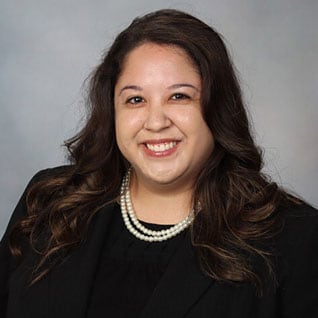 Congratulations on considering a career in pediatric infectious diseases. In my opinion, no other area of medicine is as dynamic or critical for public health as the field of infectious diseases.
Congratulations on considering a career in pediatric infectious diseases. In my opinion, no other area of medicine is as dynamic or critical for public health as the field of infectious diseases.
Recent outbreaks of COVID-19, Ebola virus disease, Enterovirus D68, MERS-CoV, influenza, SARS and chikungunya virus, as well as the increasing prevalence of antibiotic-resistant bacterial pathogens, all highlight the importance of infectious disease surveillance and management, infection control, appropriate antimicrobial stewardship, and the need for new drug and diagnostic development.
Our Pediatric Infectious Diseases Fellowship is a fully funded three-year program designed to provide clinical, research, and teaching experiences that enable you to follow your chosen career path. Through inpatient and outpatient rotations, you learn about a wide spectrum of infections.
Our relationship with colleagues in the adult Division of Infectious Diseases and the Clinical Microbiology and Clinical Immunology laboratories allows you to learn from world experts in cardiac infections, bone and joint infections, opportunistic infections in immunocompromised hosts, and state-of-the-art molecular diagnostics.
During your research time, you have the opportunity to conduct laboratory-based or clinical research with mentors within the pediatric and adult infectious disease divisions and throughout Mayo Clinic. You can obtain a postdoctoral master's degree or postdoctoral diploma in clinical and translational science through the Mayo Clinic Center for Clinical and Translational Science.
You also have the opportunity to participate in off-site electives tailored to your interests — from international electives about HIV, tuberculosis, and sexually transmitted infections to rotations in other U.S. centers or local public health departments.
Lastly, you have ample opportunities to enhance your skills as a clinician-educator by teaching medical students and residents during clinical rotations or didactic sessions and through teaching skills courses.
In summary, our Pediatric Infectious Diseases Fellowship provides you with outstanding clinical and research experiences and mentorship to prepare you for a rewarding future in pediatric infectious diseases, whether you envision a career focused on patient care, research, medical education or public health.
Please do not hesitate to contact me with questions.
Elizabeth Ristagno, M.D., M.Sc.
Pediatric Infectious Diseases Fellowship Program Director
Faculty
In addition to caring for patients in clinical practice, Mayo Clinic's infectious diseases faculty is committed to teaching and facilitating the growth of medical knowledge. All faculty members in infectious diseases have academic appointments in Mayo Clinic College of Medicine and Science and teach and supervise medical students and pediatric residents at Mayo Clinic.
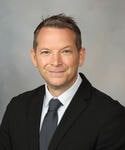 |
James Gaensbauer, M.D., M.S.
Dr. Gaensbauer's PubMed citations
Dr. Gaensbauer is a core faculty member with a special interest in the diagnosis and treatment of pediatric tuberculosis, and collaboration with public health partners at the local, regional, and national levels. He is active in global health research and education with collaborations in Latin America, particularly in Guatemala. Additional special interests include diagnostic stewardship and optimizing clinical decision-making in the care of patients with infectious diseases. |
 |
W. Charles Huskins, M.D., M.Sc.
Dr. Huskins is a core faculty member with special interests in healthcare epidemiology and infection prevention, antimicrobial resistance, sepsis, infectious disease outbreaks and emergencies, and safety and quality. He serves as the Vice Chair of Quality of Mayo Clinic Children's Center. He leads Mayo Clinic’s participation in a variety of national research and quality improvement collaborations related to these topics. His research endeavors include clinical trials and multicenter collaborative observational studies related to these topics and innovations in clinical research design and methodology with support from the National Institute of Allergy and Infectious Diseases through the Antimicrobial Resistance Leadership Group. |
 |
Nipunie Rajapakse, M.D., M.P.H.
Dr. Rajapakse's PubMed citations
Dr. Rajapakse is a core faculty member with a special interest in antimicrobial stewardship. She is the Medical Director of the Pediatric Antimicrobial Stewardship Program and Vice Chair of the Mayo Clinic Rochester Antimicrobial Stewardship Program. |
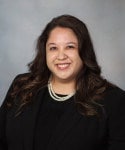 |
Elizabeth Ristagno, M.D., M.Sc. Program Director
Dr. Ristagno's PubMed Citations
Dr. Ristagno is a core faculty member with special interests in medical education and primary immunodeficiency. She serves as the Program Director of the Pediatric Infectious Diseases Fellowship and Associate Program Director of the Pediatric and Adolescent Medicine Residency Program. |
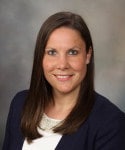 |
Theresa Madigan, M.D.
Dr. Madigan's PubMed citations
Dr. Madigan is a core faculty member with a special interest in transplant infectious diseases. |
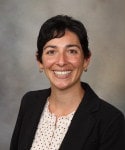 |
Emily Levy, M.D.
Dr. Levy is a core faculty member who serves as physician director for Infection Control for pediatric critical care, cardiology, procedural subspecialties, and anesthesia at Mayo Clinic Children's Center. She is an active member of Mayo Clinic's high-consequence infectious diseases (HCID) unit which involves clinical readiness for caring for critically ill patients with highly infectious diseases, including developing simulations, trainings, and personal protective equipment/isolation guidance. Dr. Levy is engaged in the national Pediatric Acute Lung Injury and Sepsis Investigators (PALISI) research network, and as part of this work is involved in multiple ongoing national trials related to pediatric critical illness from respiratory infections, influenza, or, more recently, COVID-19 and MIS-C. |
Advisers and mentors
Our graduate education advisory system is designed to provide you with comprehensive educational advice and personal support. During your first few months in the program, you choose a faculty adviser who then serves as your primary contact.